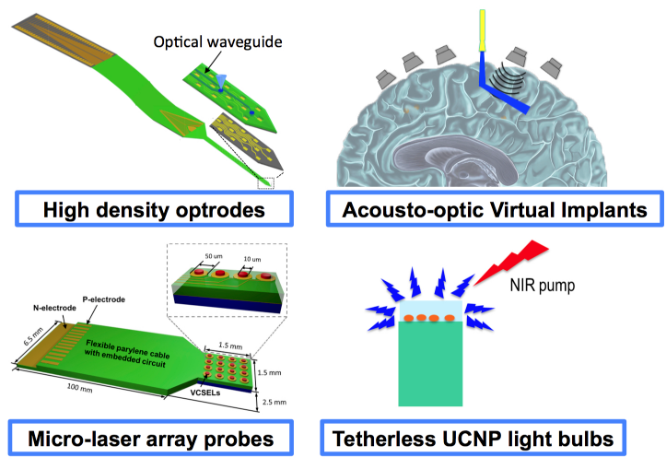
Dr. Maysam Chamanzar
Dr. William D. and Nancy W. Strecker Career Development Professor, Electrical and Computer Engineering and Biomedical Engineering
- Roberts Engineering Hall 331
- 412 268 3390
Roberts Engineering Hall 331
Carnegie Mellon University
5000 Forbes Avenue
Pittsburgh, PA 15213
Education
- B.Sc., Electrical Engineering, Tehran Polytechnique (AmirKabirUniversity), 2003
- M.Sc., Electrical Engineering majoring in Microwaves and Optics, Sharif University, 2005
- M.Sc., Electrical Engineering majoring in Microsystems, Georgia Institute of Technology, 2008
- Ph.D., Electrical and Computer Engineering, Georgia Institute of Technology, 2012
Bio
Maysam Chamanzar joined the ECE department at Carnegie Mellon University in 2015, with currently a joint appointment in the Department of Biomedical Engineering. He was with the EECS department at UC Berkeley as a postdoc researcher and later as a research scientist from 2012 to 2015. He received his Ph.D. in Electrical and Computer Engineering from Georgia Tech in 2012. His dissertation on developing novel hybrid plasmonic-photonic on-chip biochemical sensors received the Sigma Xi best Ph.D. thesis award. He is also the recipient of a number of awards including the SPIE research excellence award and GTRIC innovation award, and became the finalist for the OSA Emil Wolf best paper award and Edison innovation award.
Research
Professor Chamanzar’s group is designing and implementing novel devices and methods to address outstanding needs in biology and medicine. The main application areas of interest are Neuroscience and Biophotonics. Research on Neuroengineering includes developing next generation multimodal (Acousto-opto-electrical) neural interfaces to understand the neural basis of brain function and realize functional brain-machine interfaces. The Biophotonics front is focused on developing efficient hybrid photonic-plasmonic-fluidic on-chip systems for point of care diagnostics, environmental monitoring, imaging, and spectroscopy. The scope of research encompasses theoretical design and simulation, fabrication and packaging, experimental benchtop characterization, as well as in-vivo, in-vitro, and ex-vivo tests on biological systems.
Research Interests: neural engineering; multimodal (electro-acousto-optical) neural interfacing; bio-photonics; optogenetics; bio-sensing

Awards and Recognition
-
The SPIE Research Excellence Award
-
Sigma-Xi best Ph.D. Thesis Award
- GTRIC innovation award